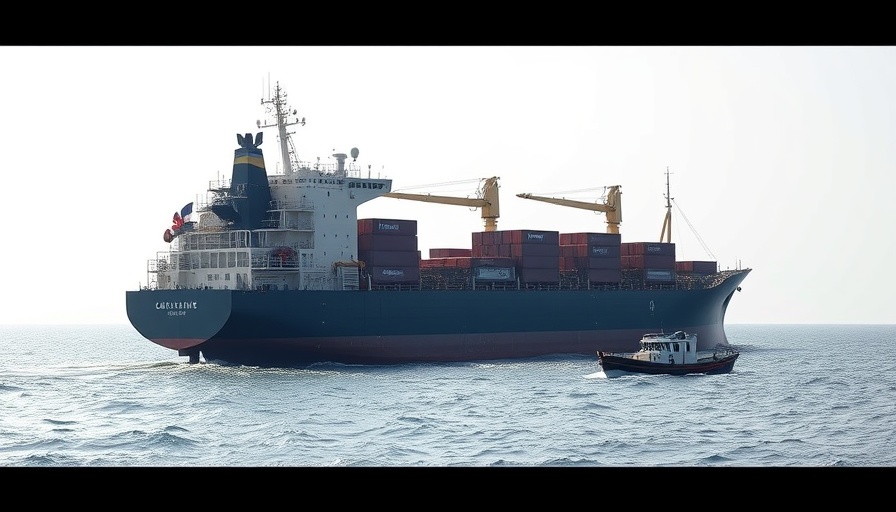
The New Norm for Shipping Safety in the Mideast
As tensions escalate in the Middle East following recent U.S. airstrikes on Iran, the shipping industry finds itself on high alert, particularly for vessels navigating through the Persian Gulf. These airstrikes, aimed at neutralizing Iran's nuclear facilities, have reignited fears of retaliation against commercial vessels, prompting immediate advisories from national authorities.
Reassessing Risks: Greece's Cautionary Advisory
The Greek shipping ministry has taken a proactive stance, urging local shipowners to re-evaluate their plans to enter the Persian Gulf until tranquility returns. As a major player in the global shipping market, Greece's call for caution resonates strongly with ship operators worldwide. They are being advised to consider waiting in safer ports or to ensure the utmost security standards when navigating through the Strait of Hormuz, a vital conduit for over 20% of the world's oil transportation.
Financial Implications Amid Rising Tensions
Maritime companies are already witnessing soaring earnings, with tanker rates jumping nearly 90% since conflicts began escalating. This spike showcases the maritime industry's risk appetite against the backdrop of increased shipping threats. While many operators may choose to operate despite warnings, the potential for fluctuating oil prices indicates that risk and reward will continually dance a delicate ballet in this critical region.
Future Trends: What Lies Ahead for Shipping in the Region?
As the situation develops, experts predict that shipping operations will adapt to unforeseen challenges, including potential closings of key routes like the Strait of Hormuz. Those shipping companies that remain resilient and flexible may capitalize on emerging opportunities amidst the chaos, turning adversity into financial growth.
The nexus of international politics and maritime commerce has long been complex, but never has it been more critical for stakeholders in the shipping industry to stay informed and agile. The measures taken in response to these geopolitical shifts could redefine best practices and risk management strategies within maritime operations.
Given the escalating situation, it is essential for business professionals, especially those invested in the shipping or oil industries, to monitor developments closely. The potential disruptions path could have far-reaching implications for energy prices and global supply chains. Staying informed and agile will be paramount as we navigate these turbulent waters.
 Add Row
Add Row  Add
Add 



Write A Comment